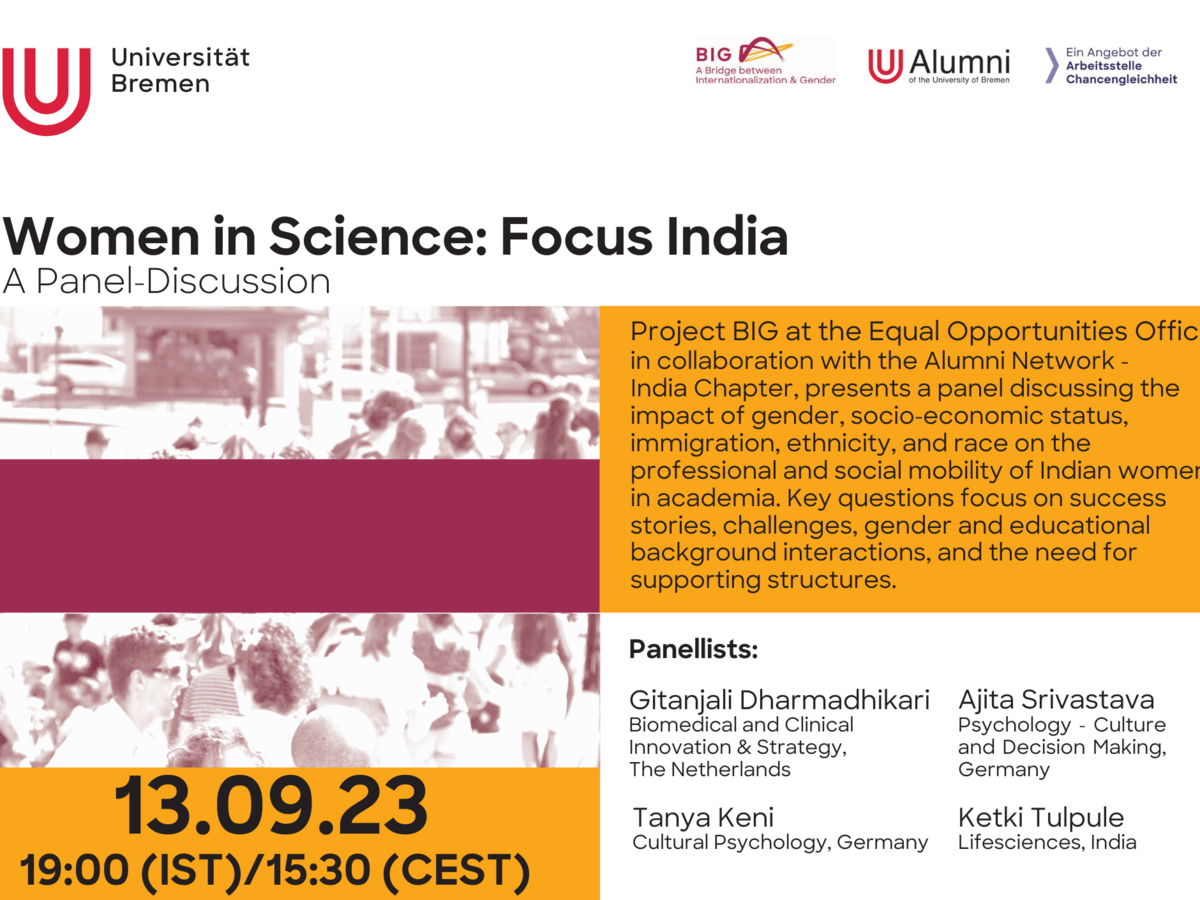Women in Science – Focus India

Four young women who have a lot in common: they come from India, they have completed their doctorates at the University of Bremen or are in the process of doing so – and they’ve made it. All four have successfully begun their academic careers. Four stories of a promising beginning – but with many obstacles and painstaking work along the way. In our online panel discussion "Women in Science: Focus India", the young Indian women told of their career paths and talked with other female scientists about how women can overcome the discrimination and problems that still exist in their fields. The discussion round was organised by the BIG initiative at Uni Bremen’s Equal Opportunities Office and the alumni association’s India chapter. An exciting and, above all, necessary discussion.
1%. In words: one percent. That is the proportion of women in academic leadership positions internationally. 99 percent are men. What a disparity! Dr Ajita Srivastava, Dr Gitanjali Dharmadhikari, Dr Ketki Tulpule and Tanya Keni, the four female panelists, look back with pride at what they have achieved. But on the way to a top position in science, their abilities and efforts may all come to nothing as long as systemic structures hinder advancement. Making this deplorable state of affairs more public in order to finally achieve change – that was the aim of the event. Hosted by the BIG initiative (Bridge between Internationalisation and Gender) and the alumni association, this round served as a follow-up to our panel discussion in February.
She felt very privileged when she came to Germany at the age of 21, said one of the Indian researchers. It was incredibly enriching, added another panelist, who is currently doing her doctorate at the Bremen International Graduate School of Social Sciences (BIGSSS), to work with other international doctoral students in a joint academic institution. These are just some of the highlights of the young researchers' careers so far.
And what were the "lowlights", the moderator Saumya Pant wanted to know. The list was not exactly short: enormous bureaucracy, starting with the lengthy process of obtaining a visa in their home country and ending with registration here in Germany; financial hurdles including cases where international students have to pay security deposits of up to 7,000 euros at a German embassy as insurance that they will return home; language barriers; the feeling of being different, reinforced by working in a lab with only men. And of course getting used to German discipline, especially around time. According to one panelist, she really felt it as a culture shock, as the famous clash of cultures. There were also difficulties at home. In India, it is anything but a given that young women pursue an academic career, especially in the natural sciences.
For young female scientists, how do career and family fit together? As a rule, very badly. If women are to have better opportunities and be able to rise to top positions, then the academic world needs completely new and comprehensive approaches to childcare. Keyword: inclusion. On this point, all the panelists were of the same mind.
And what gives hope? Perhaps most of all, as this round of talks made clear, it’s that a generation of committed and self-confident female scientists is growing up, with women who are both willing and able to hold their own in the academic world.

